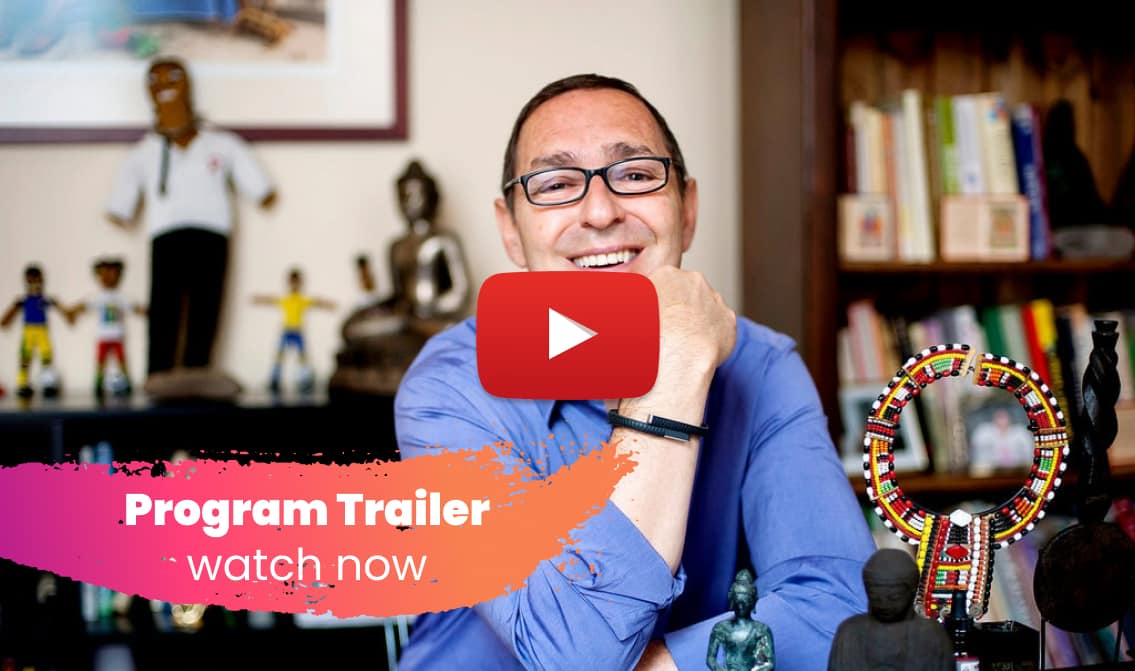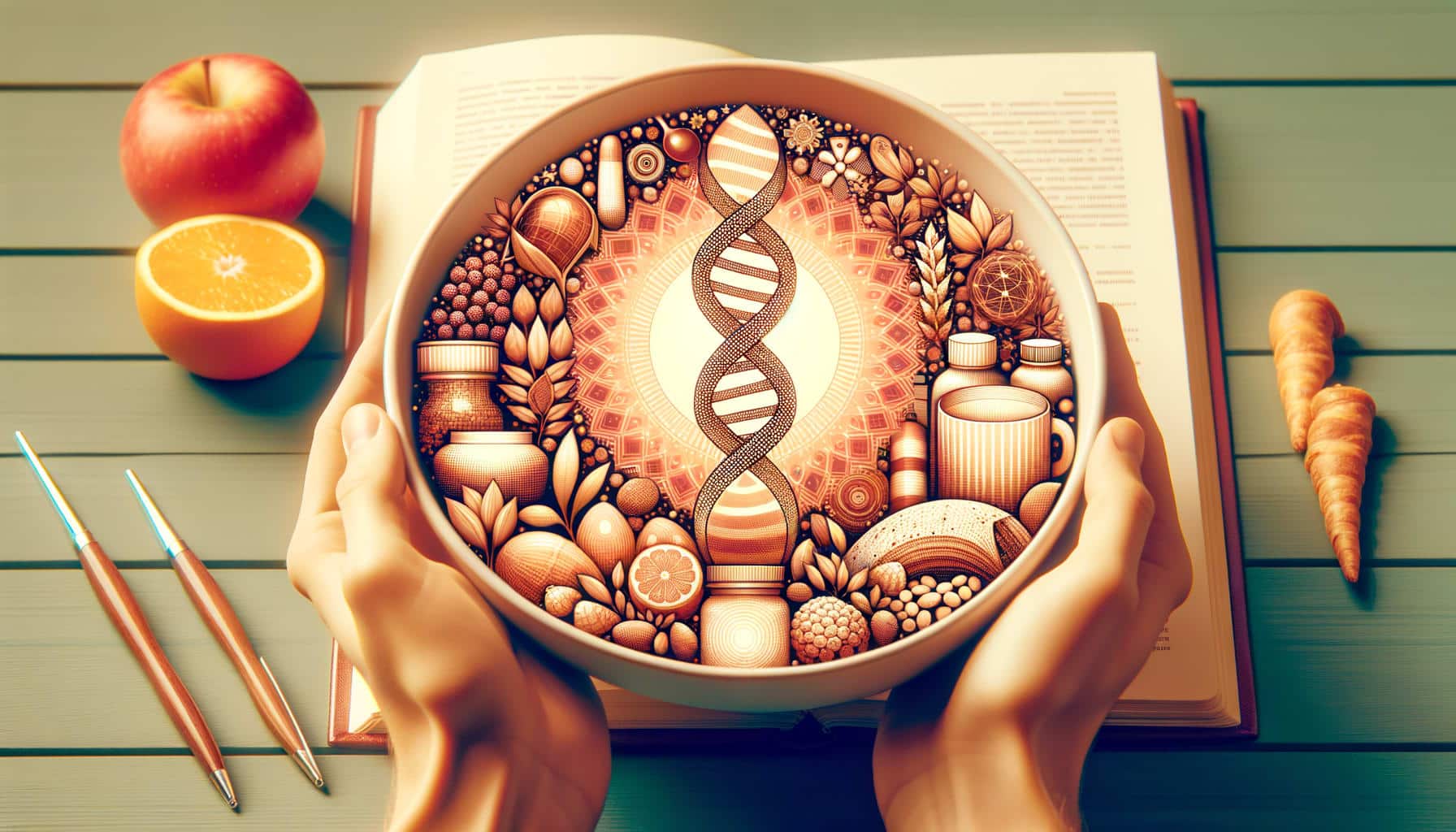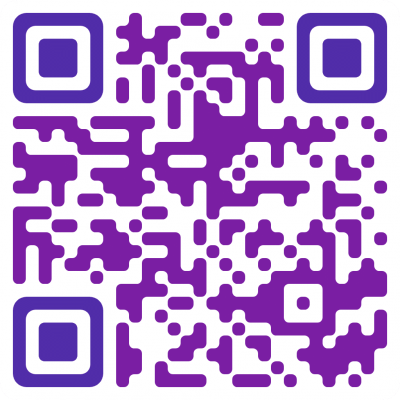In this article
The End of Mental Illness Book Summary
Who it’s for:
The End of Mental Illness is a guiding light for those who feel shackled by their psychological struggles. It reaches out to individuals grappling with mental health issues and their loved ones, offering understanding and strategies to break free from the pain.Health Conditions Addressed in this Book
Within its pages, readers confront the specters of anxiety, depression, bipolar disorder, and more. Daniel Amen arms his readers with knowledge to combat these conditions, fostering a sense of empowerment and control.Health Goals The End of Mental Illness Champions
The book is a roadmap to mental wellness, aiming to transform the landscape of psychiatric care. Readers are encouraged to strive for a future where mental illness is a relic of the past, and vibrant mental health is within their grasp.The Book’s Promise
Daniel Amen offers a new vista on mental health, where the despair of mental illness is replaced with the joy of healing and hope. The book is a testament to the possibility of a brighter, healthier future for all.Central Themes of The End of Mental Illness
The book is anchored in the belief that mental illness is not a life sentence. It emphasizes the power of brain health, personalized care, and the potential for revolutionary change in how mental health is perceived and treated.Key Takeaways
The End of Mental Illness stresses the importance of understanding the brain’s role in mental health. It implores readers to embrace innovative treatments, lifestyle changes, and a proactive stance in their journey toward wellness.Top 15 Habits in The End of Mental Illness
Transitioning from the broader themes and promises of The End of Mental Illness, we now focus on the specific lifestyle habits that are pivotal in steering one’s mental health towards a more positive horizon. These habits are the building blocks for a healthier brain and a happier life, as they address the underlying issues often contributing to mental health struggles. By integrating these practices into daily life, individuals can work towards the book’s vision of a future without mental illness.- Nutrient-Rich Diet
Eating a diet high in nutrients supports brain health, which is crucial for managing conditions like depression and anxiety. Foods rich in omega-3 fatty acids, antioxidants, and vitamins can improve brain function and mood. - Regular Exercise
Physical activity increases blood flow to the brain and releases endorphins, which act as natural mood lifters. Exercise has been shown to reduce symptoms of depression and anxiety and can improve cognitive function. - Adequate Sleep
Quality sleep is essential for brain health. Poor sleep patterns can exacerbate mental health issues, while restorative sleep can improve problem-solving skills and the ability to manage emotions. - Mindfulness and Meditation
These practices can reduce stress and improve concentration. Mindfulness meditation has been linked to decreased anxiety and depression and can enhance overall well-being. - Positive Social Connections
Building and maintaining healthy relationships contribute to emotional resilience. Social support is vital for mental health, providing a buffer against stress and depression. - Brain Health Supplements
Certain supplements, as recommended by a healthcare provider, can support cognitive function and mental health. These might include omega-3 fatty acids, vitamin D, or amino acids. - Mental Stimulation
Engaging in activities that challenge the brain, like puzzles, reading, or learning a new skill, can improve cognitive function and may protect against cognitive decline. - Stress Management Techniques
Learning to manage stress through techniques like deep breathing, yoga, or progressive muscle relaxation can help mitigate the effects of stress on mental health. - Avoiding Toxins
Reducing exposure to toxins, such as alcohol, drugs, and environmental pollutants, is important for maintaining brain health and preventing exacerbation of mental health symptoms. - Hydration
Adequate water intake is essential for optimal brain function. Dehydration can lead to difficulty concentrating, memory issues, and mood swings. - Limiting Screen Time
Excessive screen time can negatively impact sleep and mental health. Setting boundaries on the use of electronic devices can improve sleep quality and reduce stress. - Time in Nature
Spending time outdoors, especially in green spaces, can improve mood and reduce feelings of stress and anxiety. - Regular Health Check-Ups
Regular check-ups with a healthcare provider can help identify and manage physical health issues that may impact mental health, such as thyroid problems or nutrient deficiencies. - Gratitude Practice
Cultivating gratitude can lead to a more positive outlook on life and improve emotional well-being. Keeping a gratitude journal or regularly reflecting on things you are thankful for can be beneficial. - Volunteering and Altruism
Helping others can create a sense of purpose and improve self-esteem. Volunteering has been associated with lower rates of depression and higher life satisfaction.
Run a Nutrition Challenge on MasterHealth
High Protein, Eat Veggies, Time Restricted Eating, and more…
Learn More
The End of Mental Illness Supplement List
- Omega-3 Fatty Acids
In The End of Mental Illness, Daniel Amen recommends omega-3 fatty acids because they are essential for brain health. Scientific research suggests that these fatty acids, particularly EPA and DHA, can improve neuronal function and reduce inflammation in the brain, which may help alleviate symptoms of depression and anxiety. - Vitamin D
Vitamin D is highlighted for its role in brain function and mood regulation. Low levels of vitamin D have been associated with an increased risk of mood disorders, including depression. Vitamin D receptors are widespread in the brain, and this vitamin plays a part in neurodevelopment and neurotransmitter synthesis. - Magnesium
Magnesium is known to support brain health by regulating neurotransmitters, which send messages throughout the brain and body. It also contributes to the structural integrity of synaptic connections, potentially affecting learning and memory. - Zinc
Zinc is included for its antioxidant properties and its role in neurogenesis, the growth of new neurons. It is crucial for neurotransmitter function and has been linked to the management of depression and ADHD. - Vitamin B-Complex
B vitamins are important for energy production and the synthesis of neurotransmitters like serotonin and dopamine. Deficiencies in certain B vitamins, such as B12 and folate, have been linked to depression. - Probiotics
The gut-brain axis is a key area of interest, with emerging research suggesting that gut health can influence mental health. Probiotics can help maintain a healthy gut microbiome, which may positively affect mood and cognitive function. - Amino Acids
Amino acids, such as L-tyrosine and L-theanine, are precursors to neurotransmitters that regulate mood and alertness. Supplementation may support the production of these neurotransmitters, potentially improving mood and reducing stress. - Ginkgo Biloba
Ginkgo Biloba is known for its cognitive-enhancing properties. It may improve blood flow to the brain and has antioxidant effects, which could help with memory and focus, particularly in the elderly. - Curcumin
Curcumin, the active ingredient in turmeric, has anti-inflammatory and antioxidant effects. It may benefit brain health by reducing inflammation, which is thought to play a role in many mental health conditions. - Acetyl-L-Carnitine
This supplement may help with cognitive function by improving mitochondrial function and increasing energy production in neurons, which could be beneficial for mood and cognitive disorders discussed in The End of Mental Illness.
10 Products Daniel Amen Recommends in The End of Mental Illness
As we dive deeper into the recommendations from The End of Mental Illness, we shift our focus from habits and supplements to specific products that Daniel Amen believes can further support mental health. These products range from technology that aids in relaxation and sleep to tools that encourage physical activity, all selected with the intent of enhancing brain function and overall well-being. The rationale behind each product is grounded in scientific principles that align with the book’s holistic approach to mental health.- Sleep Technology Devices (view products)
Products like sound machines or sleep trackers are recommended for their ability to promote better sleep hygiene. Adequate sleep is crucial for cognitive function and emotional regulation, and these devices can help create an environment conducive to restful sleep. - Meditation Apps
Meditation apps are endorsed for their accessibility and effectiveness in guiding mindfulness practices. Regular meditation has been scientifically shown to reduce stress and improve symptoms of anxiety and depression by altering brain wave patterns and increasing gray matter density in areas related to emotional regulation. - Light Therapy Lamps (view products)
Light therapy lamps are suggested, particularly for those with Seasonal Affective Disorder (SAD), as they can mimic natural sunlight and help regulate the body’s circadian rhythm, improving mood and energy levels. - Exercise Equipment (view products)
Physical activity is a cornerstone of brain health, and products such as treadmills, stationary bikes, or yoga mats are recommended to facilitate regular exercise, which releases endorphins and promotes neurogenesis. - Air Purifiers (view products)
Clean air is essential for overall health, and air purifiers can remove pollutants and allergens from the environment. This can be particularly beneficial for brain health, as there is evidence linking air quality to cognitive function. - Ergonomic Furniture (view products)
Ergonomic chairs and standing desks are recommended to reduce physical strain during long periods of sitting. Proper posture can improve circulation and reduce the risk of the physical discomfort that can distract from mental tasks and contribute to stress. - Journaling Notebooks (view products)
Journaling is a therapeutic activity that can help in managing stress, processing emotions, and increasing self-awareness. High-quality notebooks can encourage this practice by providing a dedicated space for reflection. - Water Bottles with Time Markers (view products)
Hydration is important for brain function, and water bottles with time markers can help individuals track their water intake throughout the day, ensuring they stay hydrated and alert. - Blue Light Blocking Glasses
These glasses are recommended to reduce eye strain and improve sleep quality by filtering out blue light from screens, which can interfere with the body’s natural sleep-wake cycle. - Brain Training Software
Cognitive training programs are suggested to keep the mind sharp and improve areas such as memory, attention, and problem-solving skills. These programs are designed based on neuroplasticity principles, suggesting that the brain can continue to develop and change throughout life.
The End of Mental Illness Food List: 6 Most Important Foods
In The End of Mental Illness, Daniel Amen emphasizes the importance of diet in supporting brain health and achieving mental wellness. The following list outlines specific foods that are recommended in the book, each chosen for their particular benefits to the brain and overall health. These foods are rich in nutrients that are essential for cognitive function, mood regulation, and the prevention of mental health issues.- Wild-caught fish
High in omega-3 fatty acids, especially EPA and DHA, wild-caught fish such as salmon and sardines are crucial for brain health. Omega-3s are known to reduce inflammation, support cell membrane integrity, and are associated with a lower risk of depression. - Leafy greens
Foods like spinach, kale, and Swiss chard are packed with vitamins, minerals, and antioxidants. These nutrients, including folate, vitamin E, and carotenoids, are vital for cognitive function and may help slow cognitive decline. - Berries
Berries are high in antioxidants and flavonoids, which help reduce oxidative stress and inflammation in the brain, potentially lowering the risk of developing neurodegenerative diseases. - Nuts and seeds
Almonds, walnuts, flaxseeds, and chia seeds are not only rich in healthy fats but also contain magnesium, zinc, and vitamin E, which are important for maintaining cognitive function and preventing mental decline. - Avocados
Avocados are a source of monounsaturated fats, which contribute to healthy blood flow, lower blood pressure, and are linked to cognitive health. - Dark chocolate
With its high flavonoid content, dark chocolate can increase blood flow to the brain, improve cognitive function, and provide mood-boosting effects. However, it should be consumed in moderation due to its calorie content.
Is Daniel Amen a Real Doctor?
Many people question the legitimacy of Daniel Amen’s credentials, often due to the unconventional nature of his approach to mental health. Daniel Amen is indeed a real doctor; he is a psychiatrist and a brain disorder specialist with a medical degree from Oral Roberts University School of Medicine. He has faced skepticism for his use of SPECT scans to diagnose and treat psychiatric conditions, a method not widely adopted in mainstream psychiatry.Despite the controversy, Daniel Amen has built a significant following and has authored numerous books, including The End of Mental Illness, which presents his comprehensive approach to brain health.
Do SPECT Scans Really Work?
The use of SPECT (Single Photon Emission Computed Tomography) scans is a cornerstone of Daniel Amen’s practice, but it’s also a source of contention among experts. Critics argue that the evidence supporting SPECT scans for the diagnosis and management of mental health conditions is insufficient. Daniel Amen, however, maintains that these scans provide critical insights into brain function, allowing for more targeted treatment.The debate continues, with many in the medical community calling for more research to establish the efficacy and practicality of SPECT scans in the field of psychiatry.
Can You “End” Mental Illness?
The title of Daniel Amen’s book, The End of Mental Illness, often leads to misunderstandings. Some readers may take it as a promise of a cure, which can be misleading. Daniel Amen’s message is more about transforming the conversation around mental health, focusing on brain health to prevent and alleviate the suffering caused by mental illnesses.His approach is holistic, involving diet, lifestyle changes, and brain imaging, among other strategies, to optimize brain function and improve mental health outcomes.
Is Daniel Amen’s Advice Scientifically Backed?
Skepticism about the scientific backing of Daniel Amen’s recommendations is common. While Daniel Amen cites studies and research to support his methods, some experts in the field criticize the lack of large-scale, peer-reviewed studies to substantiate his claims. Daniel Amen’s approach combines various elements of nutrition, lifestyle, and neuroscience, which resonate with many looking for alternative mental health solutions.However, the scientific community often calls for more rigorous evidence to support his protocols.
Are Supplements Enough to Improve Mental Health?
In The End of Mental Illness, Daniel Amen advocates for the use of supplements to support brain health, which raises questions about their effectiveness. While supplements can play a role in a holistic approach to mental wellness, Daniel Amen also emphasizes the importance of a healthy diet, regular exercise, and positive lifestyle changes.It’s crucial to understand that supplements are just one piece of Daniel Amen’s broader strategy to enhance brain health and are not presented as a standalone solution.
Books Similar to The End of Mental Illness
Change Your Brain, Change Your Life by Daniel G. Amen
Written by the same author, this book delves into the science of brain imaging and its implications for treating common psychological issues. Similar to The End of Mental Illness, it focuses on how brain health is central to mental well-being and offers practical advice on improving brain function. The difference lies in the book’s earlier publication date, which means it precedes some of the latest research and insights found in The End of Mental Illness.Grain Brain by David Perlmutter
Authored by neurologist David Perlmutter, Grain Brain explores the impact of diet, particularly gluten and carbohydrates, on brain health. Similar to Amen’s work, it connects physical health with mental health and emphasizes the role of nutrition. However, it differs by focusing more specifically on the effects of diet on neurological conditions and less on the broad spectrum of mental illnesses.Brain Maker by David Perlmutter
Also by David Perlmutter, Brain Maker discusses the gut-brain connection and how gut health affects the brain. It aligns with Daniel Amen’s holistic approach to mental health by highlighting the importance of diet and lifestyle choices. The primary difference is Perlmutter’s focus on the microbiome’s role in brain health, which is a more targeted approach than the wider scope of Amen’s book.Spark: The Revolutionary New Science of Exercise and the Brain by John J. Ratey
In Spark, psychiatrist John J. Ratey examines the transformative effects of physical exercise on the brain, including mood, stress, anxiety, and cognitive function. This book shares Amen’s view on the importance of lifestyle factors in mental health but is distinct in its singular focus on how exercise contributes to neurological and psychological well-being.The Ultramind Solution by Mark Hyman
This book by physician Mark Hyman addresses the body-mind connection and proposes that improving physical health is the key to healing the brain. Similar to The End of Mental Illness, Hyman offers a comprehensive plan for overall wellness that includes nutritional advice and lifestyle changes. The difference is Hyman’s “functional medicine” approach, which looks at the underlying causes of diseases rather than just treating symptoms.Why Isn’t My Brain Working? by Datis Kharrazian
Dr. Datis Kharrazian’s book focuses on understanding and overcoming brain degeneration. Like Daniel Amen’s book, it offers insights into how lifestyle choices affect brain health and provides strategies for improvement. The main difference is Kharrazian’s deep dive into the mechanisms of brain degeneration and his emphasis on non-pharmaceutical interventions to maintain and restore brain function.About this book summary
This summary was prepared by our team at MasterHealth to the best of our knowledge. Please reach out to our team for any corrections to the content should you feel any of the information is not accurate.We work with many health & fitness professionals, who actively run group and community based programs on MasterHealth. Ask how we can help you build and amplify your business.
For health seekers, please ensure to ask your personal health care providers before making changes to your health habits and supplements; use of the information provided on this page and website does not constitute medical advice or similar professional health service advice.














